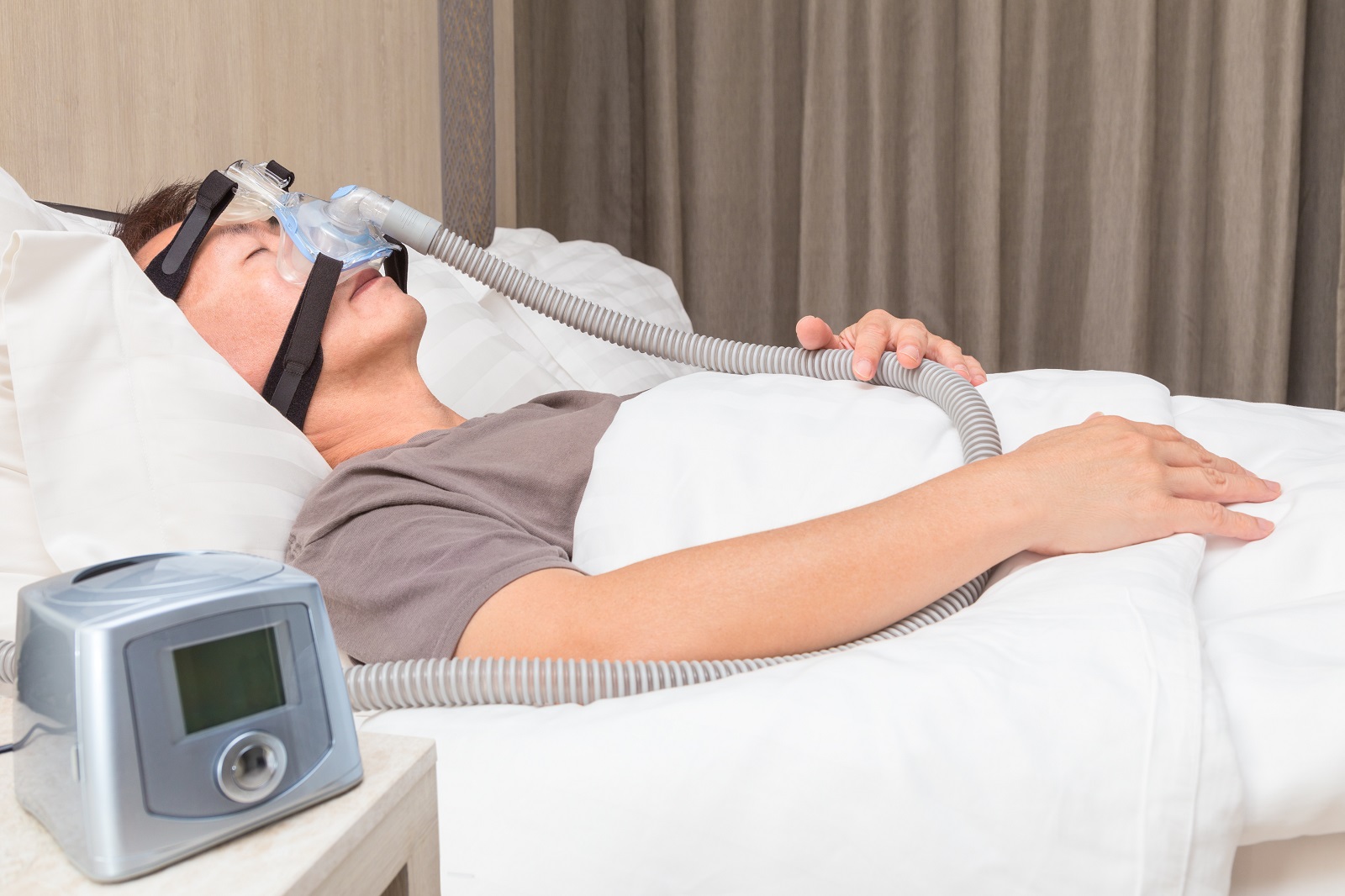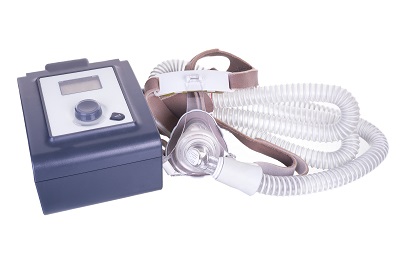Sleep Apnea: Understanding CPAP Therapy

If you’re dealing with sleep apnea, then you know how frustrating and exhausting it can be to try to get a good night's sleep. Fortunately, CPAP machines offer an effective solution that can make all the difference in improving your sleep quality and overall well-being. This guide will provide you with all the information you need to know about CPAP therapy, including how it works, what types of CPAP machines are available, and how to use one properly.
What Is Sleep Apnea?
Sleep apnea is a common sleep disorder that is characterized by repeated interruptions in breathing during sleep. These interruptions are known as apneas and occur when the muscles in the throat relax, causing the airway to narrow or close altogether. As a result, oxygen levels decrease, and the brain briefly wakes you up to reopen the airway, disrupting your sleep patterns. Sleep apnea can lead to daytime drowsiness, fatigue, and other health issues if left untreated.
How Does a CPAP Machine Work?

A CPAP (continuous positive airway pressure) machine is a medical device specifically designed to treat sleep apnea. It works by delivering a steady flow of pressurized air through a mask that covers your nose or both your nose and mouth. This continuous air pressure acts as a splint, preventing the airway from collapsing and allowing you to breathe freely throughout the night. By maintaining a constant airflow, CPAP therapy effectively eliminates apneas, promoting steady sleep.
Types of CPAP Machines
There are several types of CPAP machines available on the market, each with its own unique features and benefits. Finding the right one is essential for a comfortable and effective treatment experience. The main types of CPAP machines include:
Standard CPAP machines: These machines deliver a fixed amount of air pressure throughout the night. They’re often recommended for people who require a consistent pressure setting to keep the airway open. These machines are easy to use and have basic features like ramp-up settings to gradually increase pressure as you fall asleep.
Auto-Adjusting CPAP machines: APAP machines adjust the air pressure automatically based on your breathing patterns. They continuously monitor your airflow and adjust the pressure in real time to provide the minimum pressure necessary to keep your airway open. APAP machines offer more flexibility and adaptability, making them suitable for people with varying pressure needs or those who experience changes in their sleep apnea severity throughout the night.
BiPAP machines: These machines deliver two different levels of air pressure, one for inhaling and one for exhaling. This is often prescribed to people who have difficulty exhaling against a high continuous pressure or those with certain medical conditions that require different inhalation and exhalation pressures. BiPAP machines enhance comfort and can be especially beneficial for patients who find it challenging to adapt to standard CPAP therapy.
How to Choose the Right CPAP Machine
When choosing a CPAP machine, there are several factors to consider, including:
- Your prescribed pressure level
- Your preferred mask style
- Your budget
- Additional features, such as humidifiers and heated tubing
It's important to work with a qualified healthcare provider to help you choose the right CPAP machine for your needs.
Frequently Asked Questions about CPAP Therapy
What are the benefits of using a CPAP machine?
CPAP therapy offers numerous benefits for those with sleep apnea, ultimately leading to restored quality sleep and improved overall well-being. The benefits of CPAP therapy include:
- Increased energy levels: With improved sleep quality, you’ll wake up feeling more refreshed and energized, ready to tackle the day.
- Reduced daytime sleepiness: CPAP therapy helps alleviate excessive daytime sleepiness, enhancing cognitive function and concentration throughout the day.
- Improved mood and mental health: Restful sleep promotes emotional stability, reducing the risk of mood swings, irritability, and depression associated with sleep deprivation.
- Enhanced cardiovascular health: Effective treatment of sleep apnea with CPAP therapy can help reduce the risk of cardiovascular problems, such as high blood pressure, heart disease, and stroke.
- Better quality of life: By addressing the underlying sleep apnea, CPAP therapy can significantly improve quality of life, enabling individuals to engage in daily activities with vitality and vigor.
It’s important to note that the benefits of using a CPAP machine may vary from person to person and depend on individual factors such as the severity of sleep apnea and adherence to therapy.
What are the side effects of using a CPAP machine?
Some people may experience side effects when using a CPAP machine, although these are generally minor and go away with time. Some of the common side effects of CPAP use include:
- Dry or stuffy nose
- Nasal congestion or irritation
- Skin irritation or pressure sores from the mask
- Difficulty falling asleep or staying asleep
- Air leakage from the mask
- Headaches or ear pain
- Sore throat or dry mouth
If you experience any of these side effects, talk to your healthcare provider. They may be able to make adjustments to your CPAP machine or mask to help alleviate the problem.
What are the different types of CPAP masks?
Choosing the right CPAP mask is essential for comfort and therapy effectiveness. Some of the main types of CPAP masks include:
- Nasal masks: Covering the nose, nasal masks are a popular choice for individuals who breathe primarily through their nose.
- Full-face masks: Covering both the nose and mouth, full-face masks are suitable for those who breathe through their mouth or experience nasal congestion.
- Nasal pillow masks: Fitting directly into the nostrils, nasal pillows are lightweight and ideal for individuals who prefer minimal facial coverage.
How do I choose the right CPAP mask?
When selecting the right CPAP mask, keep in mind your breathing patterns, personal comfort preferences, and any specific needs, such as if you wear glasses or have facial hair. It’s important to try on different masks and work closely with your equipment provider to find the perfect fit that ensures a proper seal and maximum comfort during sleep. Here are some tips for choosing the right mask:
- Determine your preferred sleeping position: Do you sleep on your back, side, or stomach? This will help you decide which type of mask will be most comfortable for you.
- Consider the mask style: There are several types of masks available, including nasal masks, full-face masks, nasal pillow masks, and hybrid masks. Each type has its advantages and disadvantages, so it's important to do some research before choosing one.
- Think about the mask size: The mask should fit snugly but not too tight. Most masks come in various sizes, so make sure to measure your face before purchasing one.
- Try before you buy: Many suppliers offer trial periods, so you can try out the mask before committing to it. Take advantage of this to ensure that the mask you choose is comfortable and effective for you.
- Seek professional advice: If you're still unsure which mask to choose, speak with an equipment provider. They can provide expert advice and help you find the best fit for your needs.
How do I properly fit my mask on my face?
Proper mask fitting is crucial to ensure comfort and therapy effectiveness. Follow these tips to achieve an optimal fit:
- Clean your face: Before wearing your mask, cleanse your face to remove any oils or residues that can affect the mask seal.
- Position the mask: Gently position the mask over your nose or nose and mouth, ensuring it aligns with your facial contours.
- Adjust the straps: Secure the mask using the headgear straps, making sure they are snug but not too tight. Adjust the straps for a comfortable fit without excessive pressure.
- Check the seal: With the machine turned on, assess the mask seal by checking for any air leaks. Adjust the mask or straps as needed to minimize leaks and maintain an effective seal.
How do I clean and maintain my CPAP machine and supplies?
Proper cleaning and maintenance of your CPAP equipment are essential to ensure optimal performance, hygiene, and longevity. Follow these best practices for cleaning your CPAP equipment:
- Daily cleaning: Wash your mask, tubing, and humidifier chamber with warm water and mild, fragrance-free soap. Rinse thoroughly and allow them to air dry before use.
- Weekly cleaning: Disassemble your mask, tubing, and humidifier chamber. Soak them in a mixture of warm water and mild detergent for about 15-30 minutes. Rinse thoroughly and air dry.
- Cleaning the filters: Regularly clean or replace the filters in your CPAP machine as recommended by the manufacturer. Disposable filters may need to be replaced more frequently, while reusable filters can be washed and air-dried.
- Avoid harsh chemicals: Do not use bleach, alcohol, or strong cleaning agents on your CPAP equipment, as these can damage the materials.
By following these basic guidelines, you can help ensure that your CPAP machine and supplies remain clean and effective, which can help you get the most out of your therapy.
How often should I replace my CPAP supplies?
To maintain the effectiveness of your CPAP therapy, it’s important to replace certain supplies on a regular basis. Here are general guidelines for replacement intervals:
- Mask cushions or pillows: Replace these components every 3-6 months or as recommended by the manufacturer. Over time, the cushions can lose their shape and effectiveness, leading to air leaks and decreased comfort.
- Headgear and chin straps: These components may lose elasticity and become less secure over time. Replace them every 6-12 months or as needed.
- Tubing: Replace the tubing every 3-6 months or if it becomes damaged, cracked, or discolored.
- Filters: Disposable filters should be replaced every 1-2 months or as recommended. Reusable filters should be washed regularly and replaced every 6 months or as needed.
Can I travel with my CPAP machine?
Air travel with CPAP machines is allowed by the Transportation Security Administration (TSA). The TSA recommends bringing your CPAP machine on the plane as a carry-on. If you’re still feeling unsure, familiarize yourself with the specific airline’s regulations regarding the use of CPAP machines on board. Also, be sure you have the correct power adapters and cables to use your CPAP machine in different travel locations. A backup battery will be helpful in this situation!
Do I need a prescription to buy a CPAP machine?
Yes, you need a prescription from a qualified healthcare provider to purchase a CPAP machine. A prescription ensures that the CPAP machine is set at the appropriate pressure level and tailored to your specific needs, as determined by the results of your sleep study. Additionally, the prescription provides guidance on the type of machine and mask suitable for your condition.
In Conclusion
Congratulations on taking the first step toward more restful sleep with CPAP therapy! We hope this guide has provided you with valuable insights and practical tips to enhance your CPAP experience. Remember, consistency and proper care are key to long-term success. If you have any further questions, don't hesitate to reach out to our dedicated team for support. Wishing you nights filled with peaceful, rejuvenating sleep!
Where Can I Purchase a CPAP Machine?
We’re your trusted provider of high-quality CPAP machines, masks, and supplies, offering a wide selection to suit your needs. Contact our team to learn more about what we carry and how you can acquire it.
How Can I Pay for My CPAP Equipment?
We accept most major insurance plans and are a Medicare-participating provider. Our billing experts coordinate insurance billing for covered items. If you have any questions, get in touch today!
Questions?
Contact our CPAP equipment specialists for help by filling out the form below.
